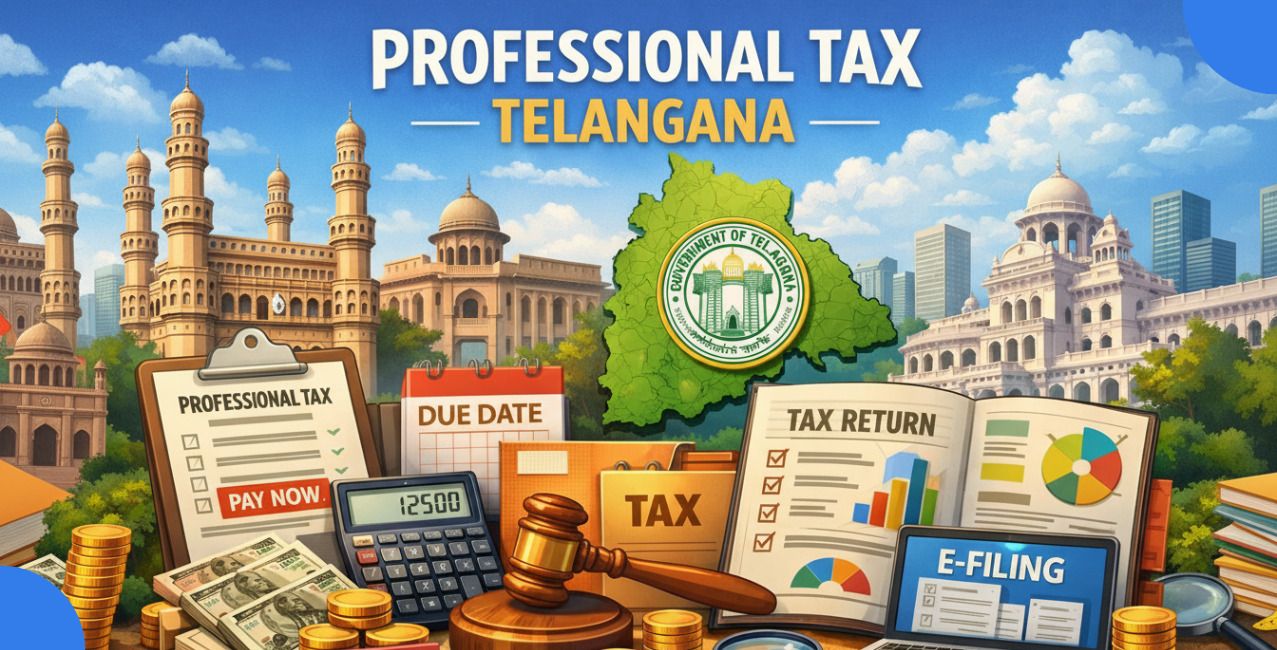Section 234C of the Income Tax Act: Complete Guide & Interest Rules

Check Your Loan Eligibility Now
By continuing, you agree to LoansJagat's Credit Report Terms of Use, Terms and Conditions, Privacy Policy, and authorize contact via Call, SMS, Email, or WhatsApp
Key Highlights
- Section 234C of the Income Tax Act ensures that you are paying your taxes on time. After the due date passes, interest is charged at 1% per month (or part).
- Advance tax must be made in 4 instalments in the following percentages of the income tax liability: 15%, 45%, 75% and 100% by 15 June, 15 September, 15 December and 15 March respectively.
- For incomes like capital gains, lottery, new business, large dividends, interest is exempted if you pay tax next instalment or by 31 March.
Section 234C of the Income Tax Act deals with the interest charged for the delay or shortfall in the payment of advance tax. If a taxpayer fails to pay the correct advance tax instalments on time, the Income Tax Department charges interest as a penalty.
Let’s understand this with an example.
Ravi, a freelance graphic designer, has a total tax liability of ₹1,20,000 for the financial year. He must pay advance tax in four instalments. However, he delays his payments and pays less than required in the first two quarters.
Due to this delay, Ravi will be charged interest under Section 234C on the shortfall amounts. This section ensures timely tax payments throughout the year and avoids last-minute burdens.
Importance of Section 234C of the Income Tax Act
Section 234Cof the Income Tax Act plays a vital role in encouraging the timely and fair payment of taxes. It ensures taxpayers follow the correct schedule for advance tax payments and helps the government manage revenue smoothly. This section mainly applies when delays, defaults, or short payments in advance tax or self-assessment tax.
Here’s why Section 234C is important:
- Encourages timely payments: It pushes taxpayers to pay taxes in instalments on time to avoid extra interest.
- Promotes financial discipline: Taxpayers stay more organised with their finances by planning tax payments properly.
- Protects government revenue flow: The government gets tax money throughout the year instead of waiting till the end.
- Penalises delays and shortfalls: It charges interest when someone delays or underpays, making the system fair for all.
- Improves tax compliance: People are more likely to follow rules if they know there’s a cost for delays.
Overall, Section 234Censures fairness and regularity in the tax system.
Objectives of Section 234Cof the Income Tax Act
Section 234Cof the Income Tax Act helps the tax system run smoothly. It makes sure that people pay their taxes on time and in the right amount. This section also encourages good habits like planning and staying on track with payments. Below are the main objectives of this section:
Section 234C of Income Tax Act impacts a wider domain of society. It looks after the taxpayers and helps them become disciplined with their taxes and notional duties.
Do you know if you have missed the March 15 deadline, you can still avoid 234C interest? You can pay your outstanding advance tax before March 31. For salaried individuals, you may also request your employer to deduct extra TDS in March to cover the shortfall.
Read More - Section 69 of the Income Tax Act – Complete Guide to Unexplained Investments
TDS Rate Under Section 234c of the Income Tax Act
Section 234C deals with interest charged for not paying advance tax instalments correctly and on time. The income tax department charges 1% interest per month or part of a month on the shortfall in advance tax. This interest applies separately for each due date if the taxpayer pays less than the required percentage.
Below is the table showing the interest calculation:
If tax is not paid before the due date, interest adds up. It ends with you paying extra. Why pay extra when you can invest the same money somewhere else?
Example
Let’s say your total tax due is ₹30,000. You paid:
- ₹5,000 before 15 June
- ₹10,000 before 15 September
- ₹25,000 before 15 December
You are underpaid in the early instalments, so interest will be charged on the shortfall for each period.
1. June Instalment (15% of ₹30,000 = ₹4,500)
You paid ₹5,000 before 15 June, which is more than required.
There is no shortfall, so no interest is charged.
2. September Instalment (45% of ₹30,000 = ₹13,500 cumulative)
You had paid only ₹10,000 by 15 September, but you should have paid ₹13,500.
So, there is a shortfall of ₹3,500.
Interest is charged at 1% per month for 3 months on this shortfall.
Interest = ₹3,500 × 1% × 3 = ₹105
3 December Instalment (75% of ₹30,000 = ₹22,500 cumulative)
You had paid ₹25,000 by 15 December, which is more than required.
There is no shortfall, so no interest is charged.
4. March Instalment (100% of ₹30,000 = ₹30,000)
You paid only ₹25,000 in total and made no further payment.
So, there is a shortfall of ₹5,000.
Interest is charged at 1% for 1 month on this shortfall.
Interest = ₹5,000 × 1% × 1 = ₹50
Also Read - Section 133-6 of Income Tax Act – Powers of Tax Authorities Explained
Total Interest Payable under Section 234C
- Interest for September shortfall: ₹105
- Interest for March shortfall: ₹50
- Total interest payable = ₹155
So, in this case, you will need to pay ₹155 as interest under Section 234C due to underpayment of advance tax in the September and March instalments.
Exemption Under Section 234C of the Income Tax Act
A taxpayer does not have to pay interest under Section 234C if the shortfall in advance tax happened because they could not estimate certain types of income. These include:
- Capital gains
- Lottery or crossword puzzle winnings (as defined in Section 2(24)(ix))
- Income from a newly started business
- Dividend income over ₹10,00,000 covered under Section 115BBDA
To get this exemption, the taxpayer must pay the proper advance tax on such income in the next due instalment. If no instalment is left, they must pay it by 31st March of the financial year. This rule recognises that some income is uncertain and may be hard to estimate in advance.
Due Date and Compliance Requirements Under Section 234C of Income Tax Act
To avoid interest under Section 234C, taxpayers must pay advance tax by specific due dates set by the Income Tax Department. If you delay or underpay, the department will charge interest, either for three months (for the first three instalments) or one month (for the final instalment).
The table below shows the advance tax payment schedule:
Make sure you abide by the dates provided in the above table, or you will face penalties.
Practical Examples
Let’s take the example of Anita, a freelance writer based in Delhi. Her total income tax liability for the financial year is ₹40,000. As she is not covered under the presumptive income scheme (Section 44AD), she must pay advance tax in four instalments as per the regular schedule.
Just to make it clear, we have mentioned that ₹40,000 was Anita’s income tax liability and not the income itself.
Conclusion
Section 234C of the Income Tax Act ensures that taxpayers pay advance tax in time and in proper instalments. If a person fails to pay the required amount by the due dates, the Income Tax Department charges interest on the shortfall. This section encourages people to plan their tax payments throughout the year and avoid last-minute pressure. By following the advance tax schedule properly, taxpayers can avoid paying extra interest and stay compliant with the law.
FAQ’s
How do I pay advance tax?
Pay online via challan ITNS-280 (bank/netbanking/e-tax portals) or at authorised bank branches.
Does TDS reduce the 234C shortfall?
Yes, TDS and earlier advance tax credits are counted when computing instalment shortfalls.
How do I get a refund if I overpaid the advance tax?
Claim the refund in your ITR; the department processes it and pays interest under Section 244A for delays.
Are NRIs or foreign entities subject to 234C?
Yes, if liable to pay advance tax in India (tax liability ≥ ₹10,000), 234C rules apply.
Can the 234C interest be waived?
Typically mandatory, but relief may be possible only via appellate/court orders or specific CBDT concessions — not routinely granted.
What records should I keep to defend an assessment?
Keep challans, TDS certificates, payment schedules, invoices, and computation worksheets for each instalment.
Any easy tools to compute 234C automatically?
Tax software, spreadsheet templates and most e-filing/tax-planning apps compute instalment shortfalls and 234C interest automatically.
Other Related Pages | |||
About the author

LoansJagat Team
Contributor‘Simplify Finance for Everyone.’ This is the common goal of our team, as we try to explain any topic with relatable examples. From personal to business finance, managing EMIs to becoming debt-free, we do extensive research on each and every parameter, so you don’t have to. Scroll up and have a look at what 15+ years of experience in the BFSI sector looks like.
Subscribe Now
Related Blog Post

Professional Tax of Telangana: Guide to Rates, Rules & Payment Process

Property Tax Bihar: Rates, Online Payment Process & Complete Guide

Property Tax Gujarat – Rates, Calculation, Payment Process & Complete Guide
Recent Blogs
All Topics
Contents
Quick Apply Loan
Consolidate your debts into one easy EMI.
Takes less than 2 minutes. No paperwork.
10 Lakhs+
Trusted Customers
2000 Cr+
Loans Disbursed
4.7/5
Google Reviews
20+
Banks & NBFCs Offers
Other services mentioned in this article





